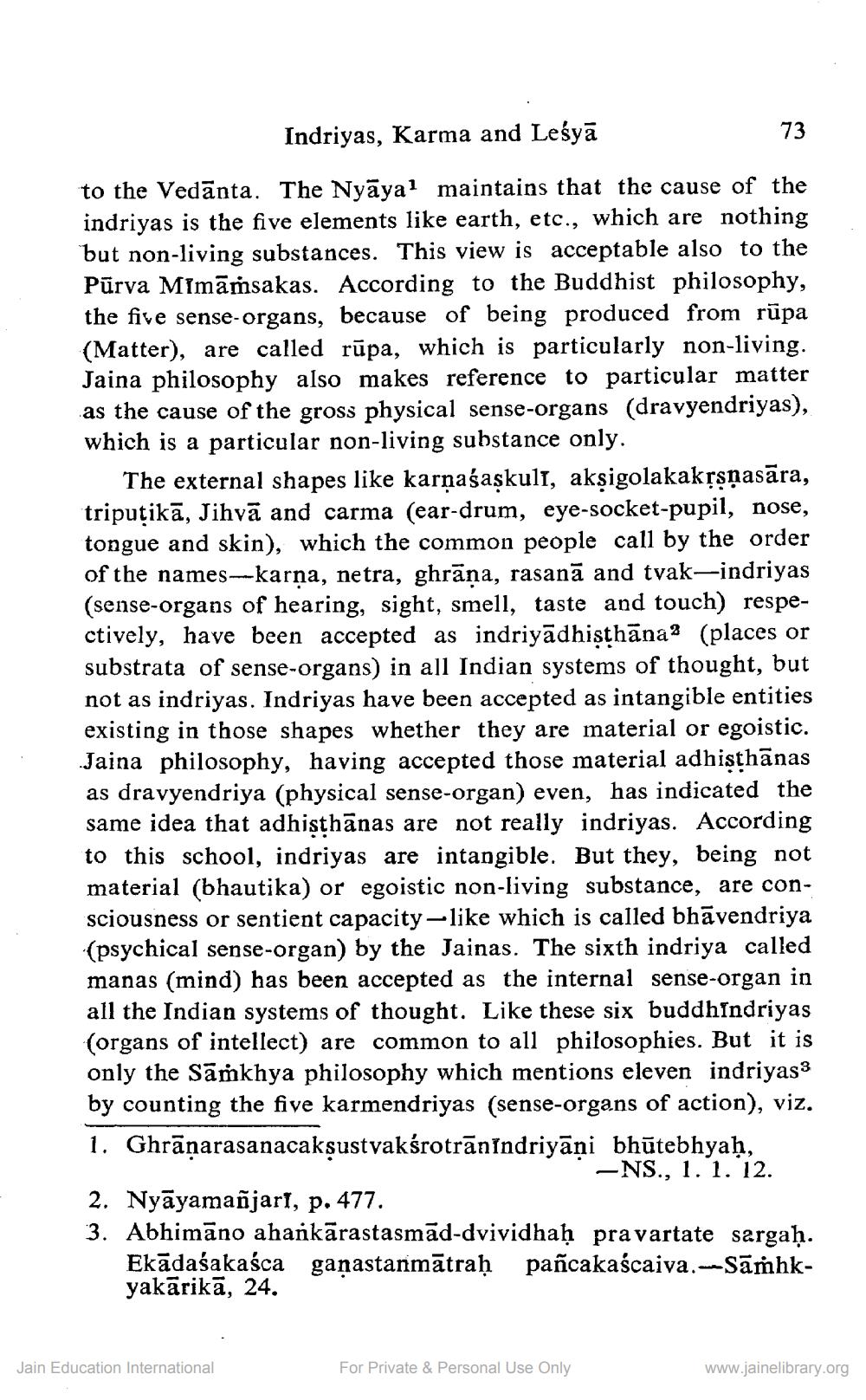________________
Indriyas, Karma and Lesya
to the Vedanta. The Nyaya1 maintains that the cause of the indriyas is the five elements like earth, etc., which are nothing but non-living substances. This view is acceptable also to the Purva MImāṁsakas. According to the Buddhist philosophy, the five sense-organs, because of being produced from rūpa (Matter), are called rupa, which is particularly non-living. Jaina philosophy also makes reference to particular matter as the cause of the gross physical sense-organs (dravyendriyas), which is a particular non-living substance only.
3333
73
The external shapes like karṇaśaşkuli, akṣigolakakṛṣṇasāra, triputika, Jihvã and carma (ear-drum, eye-socket-pupil, nose, tongue and skin), which the common people call by the order of the names-karṇa, netra, ghrāṇa, rasanā and tvak-indriyas (sense-organs of hearing, sight, smell, taste and touch) respectively, have been accepted as indriyadhiṣṭhāna (places or substrata of sense-organs) in all Indian systems of thought, but not as indriyas. Indriyas have been accepted as intangible entities existing in those shapes whether they are material or egoistic. Jaina philosophy, having accepted those material adhisthānas as dravyendriya (physical sense-organ) even, has indicated the same idea that adhiṣṭhānas are not really indriyas. According to this school, indriyas are intangible. But they, being not material (bhautika) or egoistic non-living substance, are consciousness or sentient capacity-like which is called bhavendriya (psychical sense-organ) by the Jainas. The sixth indriya called manas (mind) has been accepted as the internal sense-organ in all the Indian systems of thought. Like these six buddhîndriyas (organs of intellect) are common to all philosophies. But it is only the Samkhya philosophy which mentions eleven indriyas3 by counting the five karmendriyas (sense-organs of action), viz. 1. GhrāṇarasanacakṣustvakśrotranIndriyāņi bhūtebhyaḥ, -NS., 1. 1. 12.
Jain Education International
2. Nyāyamañjarī, p. 477.
3. Abhimano ahankarastasmād-dvividhaḥ pravartate sargaḥ. Ekādaśakaśca gaṇastanmatraḥ yakārikā, 24.
pañcakaścaiva.-Samhk
For Private & Personal Use Only
www.jainelibrary.org




